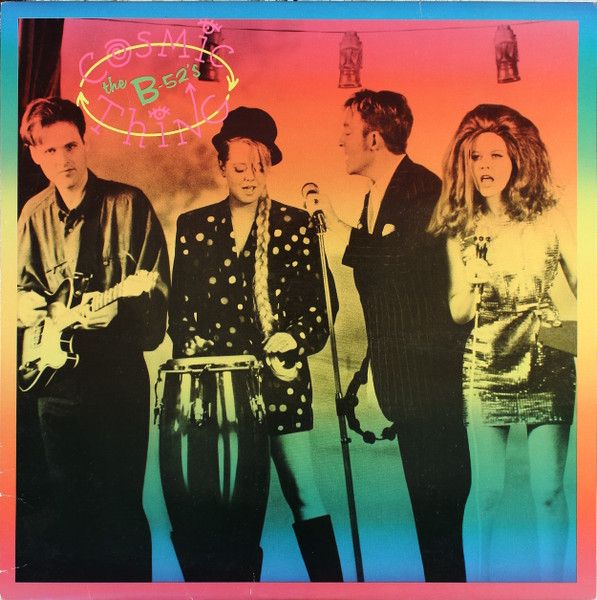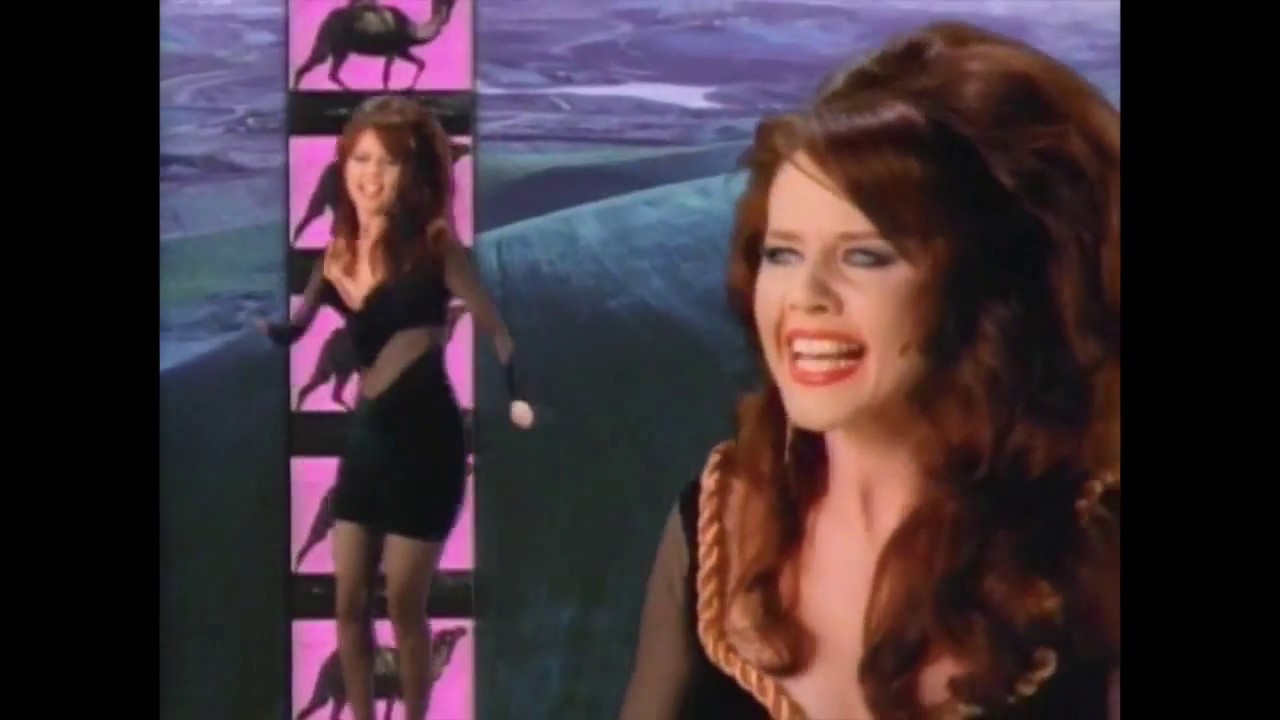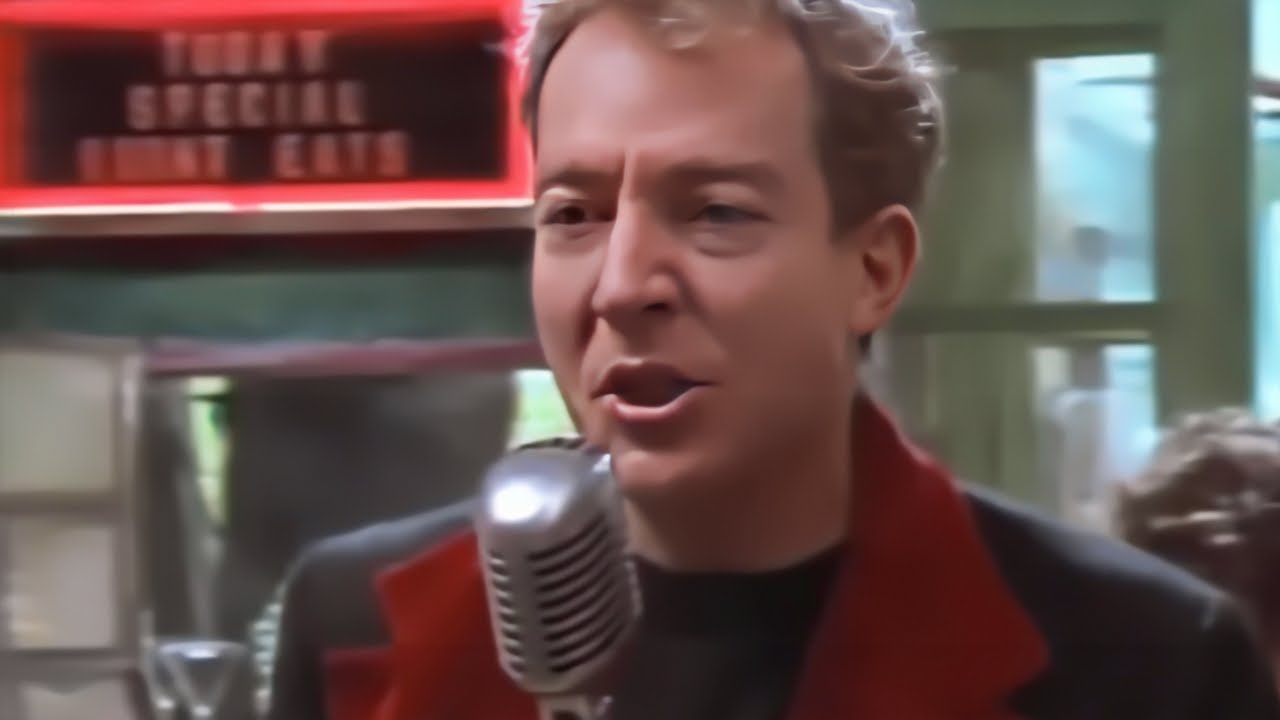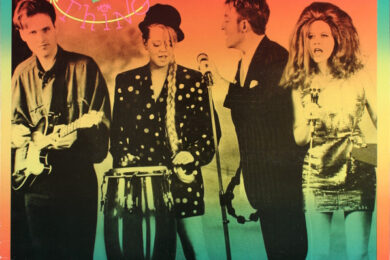Not only was the fuse not burned out, the B-52s were about to take flight again, reaching heights the band had never soared to.
In the afermath of Ricky’s death and the failure of Bouncing Of the Satellites, the B-52s weren’t busy for the frst time in a very long while. There was no tour to do, and the band did very little press and promotional appearances to support their last album with Ricky. No one expected a new album or single from the band, and there was no record label pressure.
So, they took time.
Time turned out to be the secret ingredient to success for the B-52s. There’s a real and distinct pressure for a band to follow up a hit album with more – more hits, more albums, more shows … more of everything – mostly more money for the record company. Expectation can be the enemy of creativity, and I think the freedom from any pressures or expectations is what allowed the band to thrive during this next phase of their career.
While they had time, the fallout from Bouncing Of the Satellites also hit the B-52s’ collective wallet. In a 1990 Rolling Stone article, Fred admitted: “We were just barely staying afoat, living of our catalogue.” The feature goes on to detail the band selling a variety of assets to help them stay solvent. A new record must have felt like a distant dream to the band, as much as it did to us fans.
Before the B-52s were even thinking about being together and making a new record, though, they simply needed to heal.
Cindy told Yahoo Music in 2023 about the time between Ricky’s death and the making of Cosmic Thing: ‘”It was very depressing days. It was a dark time. It was just so awful with what was going on with the AIDS epidemic and so many lost loved ones and friends. We were all so depressed and didn’t know what was going to happen,” Cindy says. “It seemed like the end of the world, really. It was really, really tough. But I felt better being with the band – with Fred, Kate, and Keith. It felt good to be with them.”
Kate talked similarly about the difficulty of that period in their career in an online interview with Celebrity Drop: “It was so devastating to lose Ricky and then so many friends afer that. It was a really dark time.’ Kate added: ‘We lost a lot of friends … the whole community was devastated.”
It’s interesting to me that both Cindy and Kate use the term ‘dark time’. It really was. When the B-52s recorded Cosmic Thing in 1988, AIDS was still rampant (effective treatment drugs wouldn’t be readily available for several years), Reagan was nearing the end of his second term before handing the presidency to George Bush in 1989, in the UK Thatcher was still the prime minister, and in Canada we had a conservative government in power under Brian Mulroney. The late 1980s were truly dark times for queer people.
Losing friends and creative partners to an unpredictable disease was a story playing out in friend groups and artistic communities around the world in developed countries, never mind the devastation in Africa and the developing world. But dark times are when queer people fnd their strength. It’s the dark times, when we’re backed into a corner, that we come out swinging the hardest. Just ask Marsha P. Johnson, or any of the heroes of the Stonewall uprising. Instead of hiding their heads in the sand, or quietly fading out of the pop culture landscape and letting their catalogue languish in the remainder bins, the B-52s decided to go to work. Whether it was conscious or not, they resolved to fight through their grief and show the world that queer people would be visible, that they would dance, that they would sing, and in the face of tragedy, they would still fnd a way to smile and honour their friends.
Afer some rest and some healing, the B-52s still had a creative spark. Hearing the band talk about being together and creating art during that time demonstrates that making music was part of their healing process. Cosmic Thing started slowly, the creative ember starting to ficker.
Kate and Keith ended up with homes close to one another in Woodstock, New York. So close, in fact that they could canoe across a pond to visit each other. That’s where Cosmic Thing started. Keith would play bits of music that he’d been writing for Kate, and I love to imagine them in the woods, or by a lake, playing the beginnings of what would be their next album.
Playing music can be therapeutic, and Cindy posited in Rolling Stone that working on Cosmic Thing was a kind of therapy for Keith. In a retrospective interview in 2018, she said “I think Keith dealt with the shock by doing music every day. That was his way of getting over his depression.”
The entire band talks in that same article about working together and healing in the wake of losing Ricky. They talk about trauma and liken their time together to a support group. The B-52s were really helping each other out of a pretty bleak situation.
“We came up from the very bottom on this one, we really did,” said Cindy to Rolling Stone about the making of Cosmic Thing.
Keith had written some great music, and Kate and Cindy both agreed to work as a band again. Keith recounted the next step. “And then we called Fred and said, ‘Do you want to do it?’ He said, ‘Sure.’”
The B-52s were a band again, and this time they were going to do it for the right reasons. Kate told Stereogum “We made a promise: This was not going to be anything where we tried to make a hit. This would be from our hearts, we’d pour our souls into this.”
The four bandmates took their work very seriously. They rented a rehearsal space in Manhattan and spent four days a week hard at work. Playing, rehearsing, and writing collectively for the frst time in a long time.
Kate describes the band’s process: “Keith would write the instrumentation and we would jam on that. We’d all get together and pick out parts and paste them together, then we would learn the parts.”
They spent a year working in that studio, and by the end of it, they had the outline for ten new songs. Cindy told Rolling Stone that “it turned out to be such a healing thing to get back together again. It felt like Ricky was in the room”.
The B-52s had done the work, they had the songs ready, and it was time to hit the studio. They didn’t make Cosmic Thing alone though; the Bs built a superstar team to help them bring their vision to life.
The band had worked with Nile Rodgers on one track for the Earth Girls Are Easy flm soundtrack, ‘(Shake That) Cosmic Thing’. The Bs were big fans of Nile and Chic and enjoyed working with him on the song, so he was a natural choice to produce Cosmic Thing. Nile was game, but his schedule wouldn’t allow him to do the entire album. Enter Don Was. Don wasn’t as well-known as a producer, but that would change very soon with his work on Cosmic Thing and Bonnie Raitt’s massive comeback record Nick of Time.
Nile would end up producing six of the ten tracks on Cosmic Thing (‘Cosmic Thing’, ‘Dry County’, ‘Deadbeat Club’, ‘Roam’, ‘Topaz’, and ‘Follow Your Bliss’) with Don doing the honours on the other four (‘Love Shack’, ‘Junebug’, ‘Bushfre’, and ‘Channel Z’). I like the fact that Nile and Don would both end up with a top three single out of working with the band!
Two super-producers, check. What would the B-52s look and sound like in a post-Ricky world?
When Ricky died, the record company was urging the band to hire a new guitar player, but the Bs weren’t having it. Keith decided to step into Ricky’s very big shoes and act as the B-52s’ lead guitarist. No easy task, but he had worked so closely with Ricky over the years, he was able to do the job seamlessly. No doubt with hours and hours of practice.
The B-52s dropped the Fairlight from Bouncing Of the Satellites and the drum machine from Whammy! and decided to fesh out their studio band to make Cosmic Thing. Sara Lee is the MVP of the new hires; she plays bass guitar on every track except for ‘Channel Z’ where no bass is credited. Do I still wish Keith did double duty and got behind the drum kit? Yes. But the session drummers they brought in, Steve Ferrone, Sonny Emory, Charley Drayton, and Leroy Clouden, all did fantastic work on the tracks they contributed to. It was lovely to hear real live drums again on a B-52s record.
Keyboard duties were shared amongst a few musicians, but Kate got back behind her keys for several tracks, and Fred was banging away on percussion too. The full band approach was back in action for the B-52s for the frst time in a long time. The secret of their success was always teamwork, the contributions of everyone, and finally, they figured that out again. The Bs were truly a band again.
Cosmic Thing is really the frst B-52s album of real songs. Front to back. They’re not novelty tracks, they’re not silly. There is real emotion. Real depth. Real tenderness. And a whole lot of horniness. Cosmic Thing is by far the B-52s’ horniest record since Wild Planet. They’re still the good old Bs – there are moments of humour and levity, and you can dance your ass of to Cosmic Thing but there was something new here. More artistry coupled with the wisdom of age and experience maybe? This was a band that had seen a lot in the time they had been together and they were ready to share a piece of themselves the world hadn’t seen before.
This is an edited extract from Pete Crighton’s 33 1/3 book on The B-52s’ Cosmic Thing (Bloomsbury). Crighton is the bestselling author of The Vinyl Diaries: Sex, Deep Cuts and My Soundtrack to Queer Joy. He is based in Wellington and Toronto and his work has appeared in the Globe and Mail, Toronto Star, Queerty, The Advocate and the West End Phoenix.






